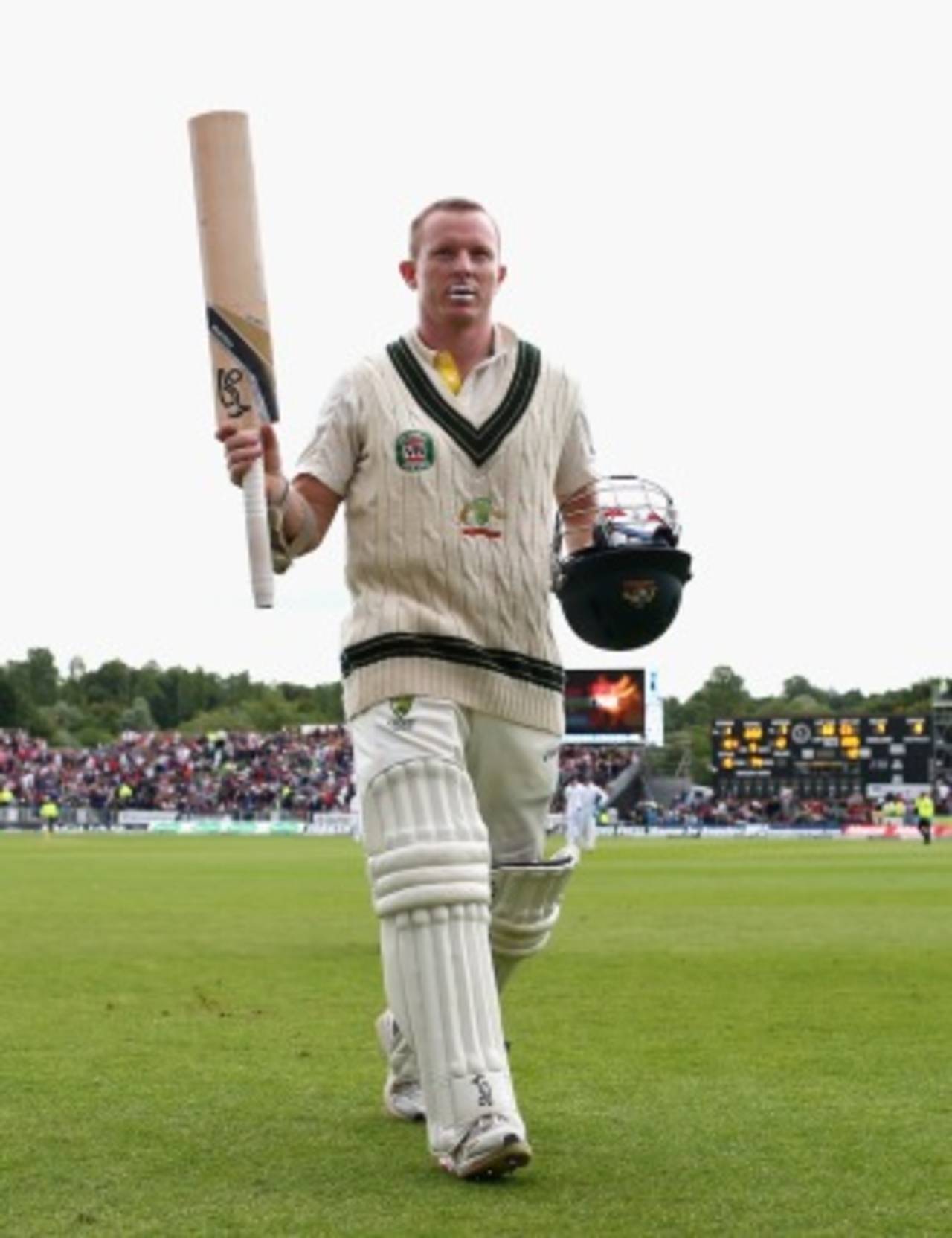Second oldest maiden centurion ends long wait
Stats highlights from the second day of the fourth Ashes Test at Durham
Shiva Jayaraman
10-Aug-2013

Chris Rogers' maiden century was the first by an Australian opener in 12 Ashes Tests • Getty Images
*1200GMT, August 12: The article had said that Matt Prior was the second quickest wicketkeeper to 200 catches in Tests which was factually wrong. This has been corrected.
Shiva Jayaraman is a sub-editor (stats) at ESPNcricinfo